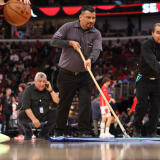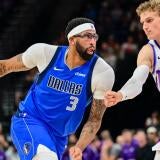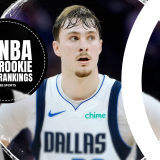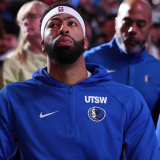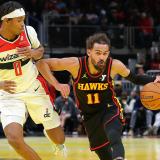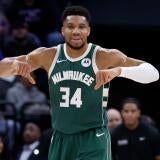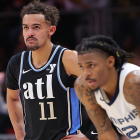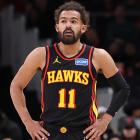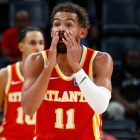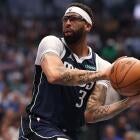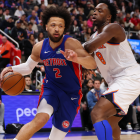Team USA men's basketball: Americans have looked vulnerable, but they're clearly most talented Olympic squad
The U.S. dropped its first two exhibition games in preparation for the Olympics
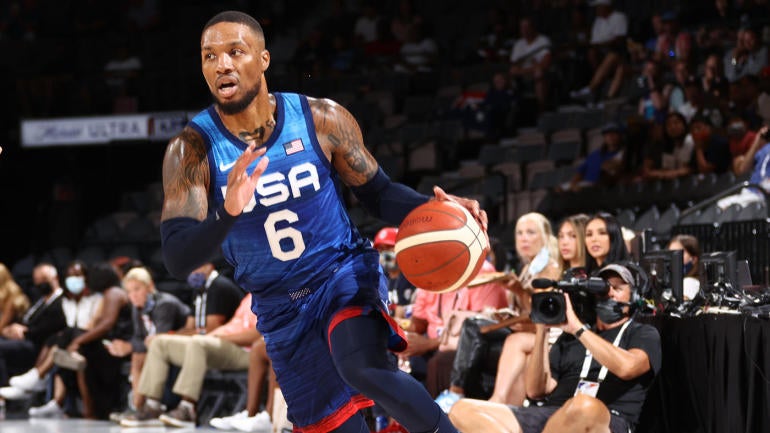
In the middle of the NBA Finals, nobody expected the story to become the United States men's basketball team dropping two straight exhibition games in the leadup to the Tokyo Olympics this summer. But here we are. On Saturday, it was Nigeria, a team the U.S. walloped by 83 points at the 2012 London Games, taking down the Americans. On Monday, it was Australia.
The Americans responded Tuesday night with a comfortable 28-point exhibition win over Argentina.
Yes, the U.S. has only lost four exhibition games over the last 29 years with NBA players, and two of them happened over a 48-hour span. Yes, Gregg Popovich, who is now just 9-5 as the U.S. coach, boasts a better career winning percentage with the San Antonio Spurs (.667) than he does with the national team (.642). Yes, the Americans have lost, unbelievably, four of their last five international games with NBA players dating back to the 2019 FIBA World Cup, where the U.S. lost to France and Serbia en route to a seventh-place finish.
But we're still talking about a massive talent disparity between the Americans and the rest of the world. I know that's stating the obvious, but amid all the hoopla over these losses, it must be stated nonetheless. Popovich attributed the second-half falloffs in the two losses to a lack of conditioning. It sounds like an excuse. Perhaps it is. That doesn't mean it's not true. A lot of these players haven't played in a real game in quite a while. In fact, other than Kevin Durant, every player currently suiting up in Vegas either didn't make the playoffs or lost in the first round in early June.
Speaking of Durant, he's not going to keep shooting at a 38-percent clip, as he's done over these first two games (10 for 26). Bradley Beal isn't going to score two points, as he did against Nigeria, very often. If there are concerns, Damian Lillard is a guy that can be targeted on the defensive end. Additionally, the Americans, who will play small and use a lot of Draymond Green at the five, could have trouble on the glass, where they've been beaten in both these first two losses.
That could be a particular problem in their Olympic opener vs. France (Rudy Gobert). The paint battle has not gone the Americans' way so far. On Monday, the Australians outscored the U.S. 44-24 in the paint. That gap needs to close, but Team USA -- with the likes of Lillard, Durant, Beal, Zach LaVine and Jayson Tatum -- will be a heavy jump-shooting team and they have too many shooters to go cold at once.
On that note, reinforcements will be arriving. Jrue Holiday, who will provide elite perimeter defensive support to Lillard at the point of attack, Khris Middleton and Devin Booker will be joining the U.S. team after the NBA Finals. That is an embarrassment of shooting and playmaking riches.
Now, to the idea that the the U.S. didn't take these two games vs. Nigeria and Australia seriously, let's scratch that right now. They did. They were active and aggressive defensively, switching and pressuring the ball. Against Australia especially, they moved the ball well and played with half-court pace offensively. Collectively, they didn't make a lot of shots we have to assume they'll make, and to Popovich's point, they did wear down late.
Give Nigeria, a team that hit 20 3-pointers and battled every second defensively, and Australia, a squad that boasts legitimate NBA threats (Joe Ingles, Patty Mills, Matisse Thybulle, Aron Baynes, Dante Exum), credit. Slovenia has Luka Doncic, who can make a potential game vs. the American tight on his own. Spain has Marc and Pau Gasol. Ricky Rubio, European star and former NBA player Rudy Fernandez, Willy Hernangomez and Alex Abrines. France has Gobert, Nic Batum, Timothé Luwawu-Cabarrot, Evan Fournier and Frank Ntilikina.
There is no question the gap between the U.S., which has won the last three Olympic gold medals, and the rest of the world has shrunk. But a significant gap still exists. The Americans have to prove they can execute down the stretch of close games, because they will not blow everyone out. But for now, they get the benefit of the doubt that they'll figure that out. They lost these two games fair and square. They didn't take them for granted or not care or not try. But they weren't playing for a gold medal either. So let's hold off on the overreaction.


